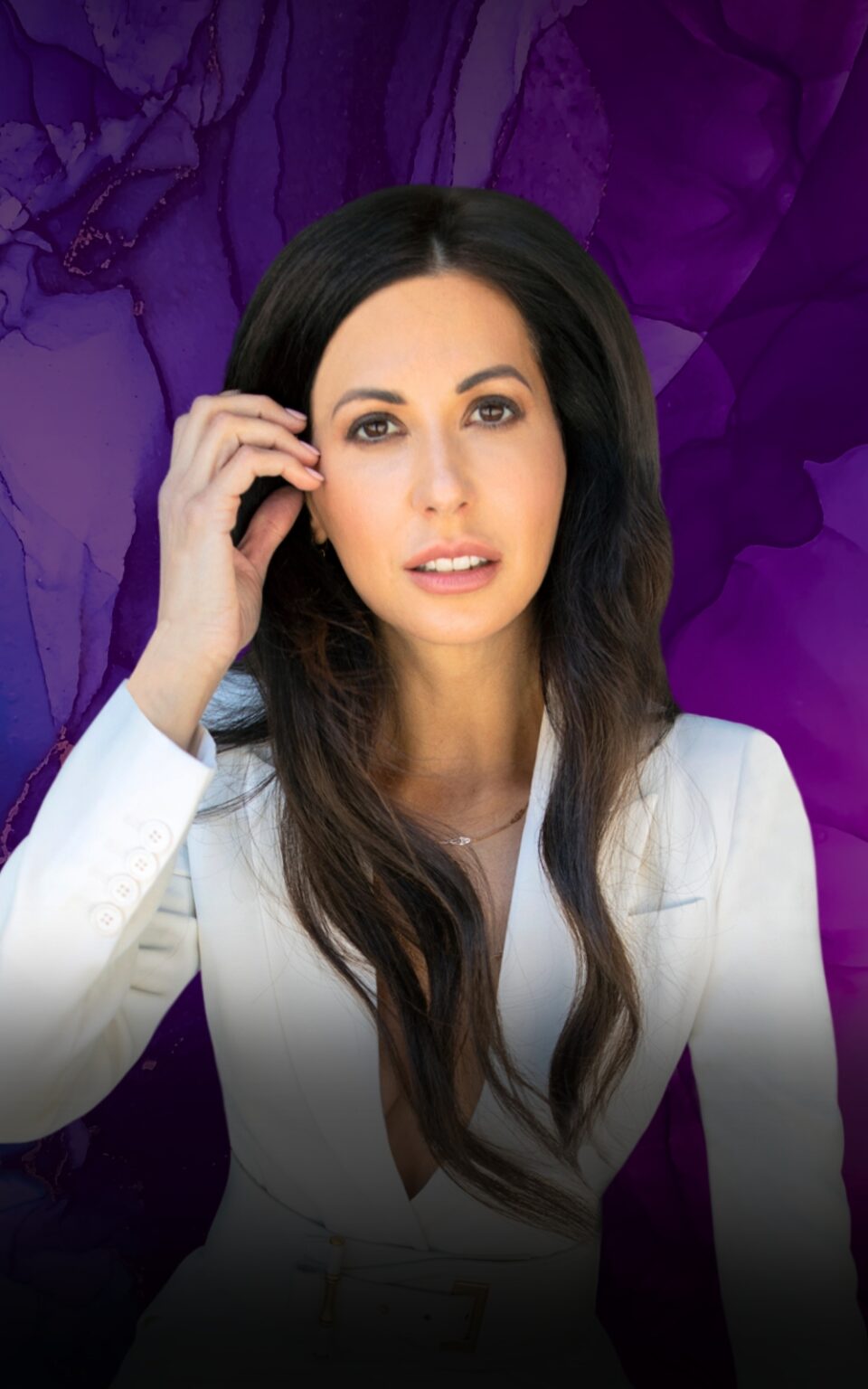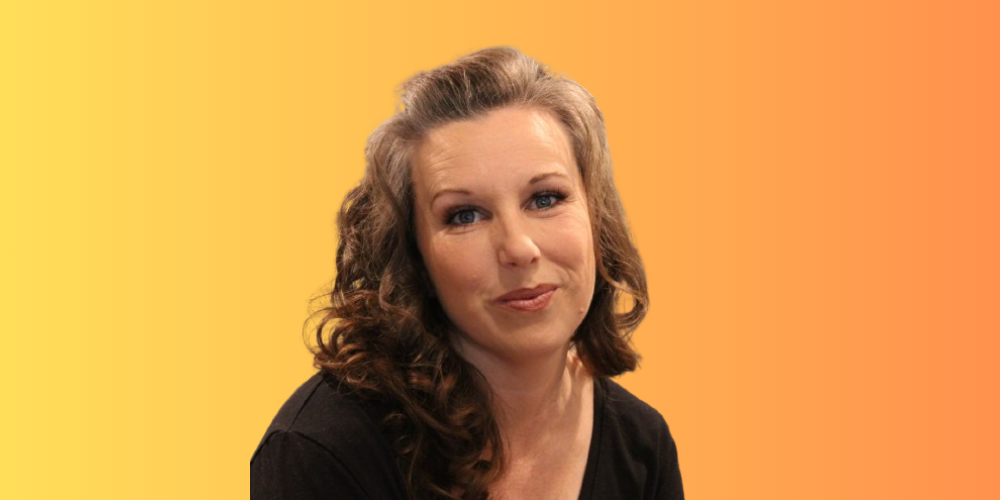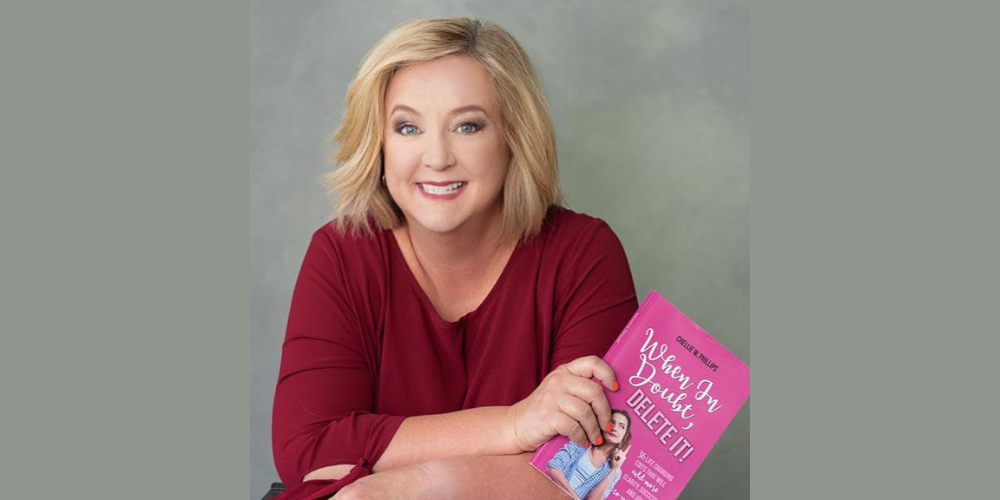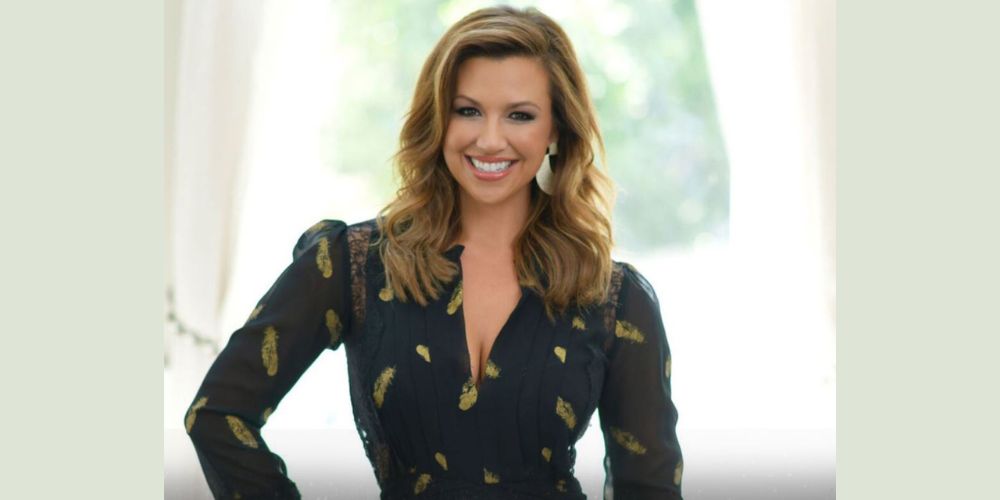Raj Girn: My guest is serial tech entrepreneur Sathish Bala, the founder of Schoolio, an online homeschooling education platform. Sathish has 25+ years in tech, even though he looks like a schoolboy, having built B2B and B2C start-ups throughout his professional career. He, in fact, has founded three companies to successful exits and has sold a staggering over $50 million worth of products and services in his time. So I think he knows a thing or two about scaling companies to succeed.
Here is Part Two of our conversation:
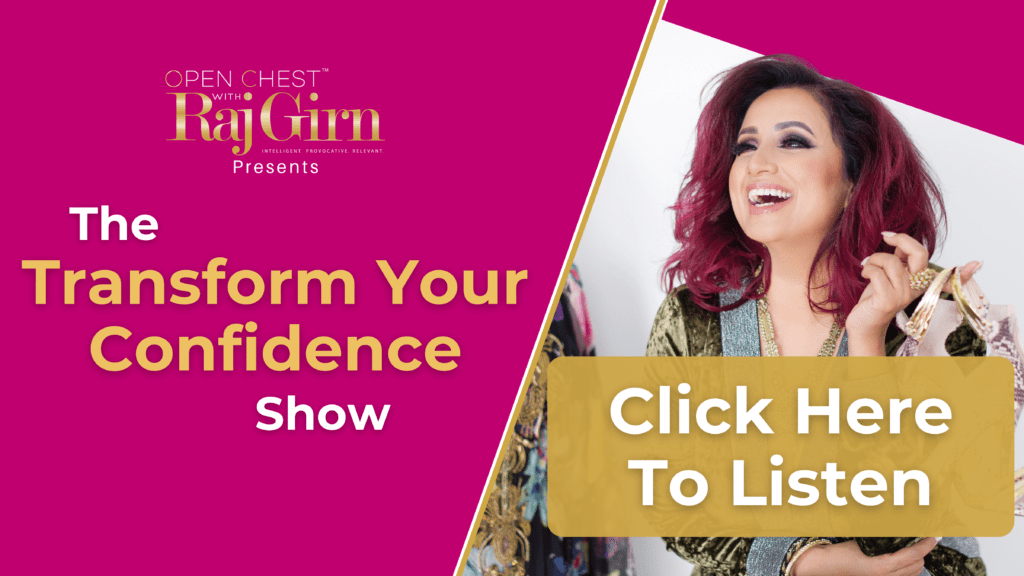
Raj Girn: And you know, something that you said there in case people didn’t quite hear what I heard, but I heard you saying that creativity has a lot to do with finding something that is based in life, in real life and using that as part of your creativity in your messaging with your marketing. Because if you can find how to do that right, a person gets it. And that’s the thing about marketing, right? And, keeping it simple, stupid. You know, even though it’s a cliché and it’s something we’ve been saying for decades, it still applies today if a person gets what you’re talking about because they can relate to their life or something they’ve seen in life, you’ve accomplished your goal with marketing. Is there anything else you want to add to that?
Sathish Bala: I think this is where, when people are looking at starting a business, I always ask them why. Because in some businesses the marketing is you. I remember that meeting from 15 years ago and the team was like, we got to put your face on on the flyer for this office. And I was like, why? No other festival person does it. And I’m not the star. I’m not the DJ. I’m not the singer. And they said, you are the brand that we need to put out there, the educated business person with the tattoos and the music. Parents hate one version of you until they see the other version of you. So if we’re going to push that stereotype, you need to be on the flyer. And I remember saying no, because if it all went to shit, and my face was on a flyer, my family is going to be ruined. And I’ve got a company.
But it was one of those pivotal moments where in order for me to encourage others to come out of their shell, I needed to be ready to hang on the news myself. So myself, you saw it and it worked out for us because, like you said earlier, before we started all this thing, I am who I am from 25 years ago, it doesn’t change. And so whatever I do, you’re going to get the authentic version and that’s important. And if that happens to be the kind of business you’re starting — a coach, a consultant or whatever — then you have got to be confident enough to put yourself out there.
“Creativity has a lot to do with finding something that is based in life — in real life — and using that as part of your creativity in your messaging with your marketing” ~Raj Grin
Absolutely. For people looking to start a business or organization today, they have a lot of options, tools and methodology that they can tap into to create the perfect marketing plan. So let’s talk about some of these next. There’s so many. I feel the best way for us to really encapsulate this and to make it simple is to categorize them into the paid and the earned or the organic. As most people know, there is a simple dance that needs to be choreographed between paid and earned marketing, where utilizing both is optimal, but it’s not always viable. So when someone is looking specifically to scale their business, revenue wise at least, what do you suggest that they do when incorporating paid earned marketing? Because this is like the number one hot button topic and challenge that my clients come to. And I have a specific way I do this. I want you to share yours because you’ve always done this, right?

Yeah, I know. And like you said, there no right or wrong on this. There’s so many sub variables on the type of business. Who’s your customer or audience? What are you trying to sell? Price point of the product. Like we’re selling something for less than $10. There’s not a lot you can do. It’s going to eat up all your margins, right? There’s a bunch of different things. But on a higher level, I always look at any new business I start with, what do I do to validate the revenue potential? And I always start organic because if you can’t convince 100 people that, you know, with the pain point that you’re trying to solve to give you money, you’re not going to convince another 1,000. So I start organic. And even with Schoolio, the first 50 people who purchased from us, we already network with them through Facebook messaging and looking at blogs and things like that. And I was convinced that if these people will buy it and out of that, five people will give us a great testimonial, we can leverage that into the next 100. So organic is really important in the beginning because you got to know who you’re selling to and what input you want to get from it.
And then when you’re ready to go pay, the number one thing you’ve got to look at is are you growing the customer base or are you looking at revenue? And if you’re solely looking at it from a revenue perspective, if your product cost and your profit margins are not figured out, you will 100 per cent lose money. If you’re only interested in revenue because paid media is so expensive, and it gets more expensive by the day as more people jump onto these platforms. Yeah, but it’s a bidding system at its core. And so, you got to be really careful, like what is your number. And this is where people get scared because a lot of business folks say “I’m not a numbers smart.” Well you should know your product cost, you should know your profit, you should know how much you’re willing to spend to get a customer. Yeah. You get the customer. How much do you think they’ll spend with you in a year? Lots of acronyms, you know, lifetime value and customer acquisition and all the stuff. Get past all that silliness. Just dumb it down to like, keep it simple. Who’s my customer. How much will they pay for it? How much can our profit, based on what I sell to? And how long will they keep buying from me? If you have got those four or five metrics mapped out then you can confidently move into paid. If you don’t, don’t spend a dime because you might as well be burning it.
This is just beautifully positioned for my next question, which is about data. How should people look at utilizing data for building out marketing strategies? Because I still see time and time again, especially among creators where they create marketing campaigns and put content out there, similar to kind of what you just finished saying, but don’t make the connection between marketing and data. So their campaigns, they just simply don’t convert. What can you share about the important connection between data and marketing that people have got to understand if they’re to scale their business?
Yeah, and I’m going to use a maybe not so well analogy. If you are out looking for a bargain, if you’re in the dating scene, you’re not going to go out 100 times and meet 100 different partners and then not look at what didn’t work. Why didn’t he or she call me back? What happened? So for me, business is the same thing. At the end of the day, people buy from people. Even if you’re a no name brand people still will buy from the brand because it said some things about being human and the values. And so the only way to understand what people are going to react to or not react to is by knowing your data. And in today’s world, you can literally track everything. Like for our little company Schoolio, we track maybe 25 different data points from the website visit. How long you stay there. What do you do? What do you read after you read the first thing? Or do you go after you come to us? Where did you come from?
“At the end of the day, people buy from people. Even if you’re a no name brand people still will buy from the brand because it said some things about being human and the values.” ~Sathish Bala
How many times did you see me before you reacted? What kind of language gets you reacting? What kind of design? What kind of video? What kind of click baiting things? We are constantly A/B testing because our entire purpose in marketing is to create a relationship out of an anonymous potential buyer. Yeah, that’s your entire purpose in marketing Anonymous to know. And then when you know them, then you can start to convert them into sales. But if you don’t know them, you don’t know what they want. And so for me it’s all about data smart. And you can track everything to today very affordably. And you kind of have to if you want to play this game, because it’s a digital touchpoint world. Now, even in the music business, we can predict by neighborhood what artists will create traction. Like people in politics, you reach out to us, I can tell you what music you should play on the ads for each neighborhood to get the best voting results. It’s crazy. But if you don’t pay attention to the data, it’s just noise. And most of us live with noise because we’re looking for that one hero number. What’s the sale? But you can make a $100 today and lose $99 in a week and you won’t even know if you’re not tracking.
What a powerful statement that is folks. You heard it right here. A lot of things to think about. You can’t ignore data because it doesn’t lie. And that’s the key here as well. So let me just kind of flip this a little bit for people who maybe aren’t looking at revenue being kind of the big goal with their marketing, but they’re looking to scale audience wise? So their goal isn’t revenue maybe from the onset, or maybe isn’t at all. What do you recommend that they do when incorporating paid and earned marketing that is perhaps different from the end goal being revenue? Would there be a different strategy that you feel that they should be thinking about?
Yeah, and it’s actually a lot harder because when you’re trying to grow a business with a one to one value proposition, you need to teach math. I have a $29 book. And if the math is good enough, I have the right to sell you science or language or social studies. But I feel like, hey, we’re building a really cool homeschooling community. Come join us. It’s a much harder sell because now I have to tell you why. Why is it free or what do I get in it? How long do I stay in it? And once you invite them to the dance, whether it was a 100,000 people or 10, each one of them are equally important. Each one of them have got a need. And so for me, if you want to scale to a numbers perspective, then there’s some methodology. Premium access and trial systems are really big at getting people into the ecosystem through offers or additional values, like “join me and you get the one hour coaching every week for free” and all this stuff. But just building the base without a transactional layer added on top also is a recipe for disaster because people will eventually disconnect from the best of the communities when another person pops up with a different offer. So you kind of want to go into I’m not going to make money today with you, but here is my blueprint for the next three to six months. If you’re just building a base for building the base is not sustainable. And it’s not ownable.
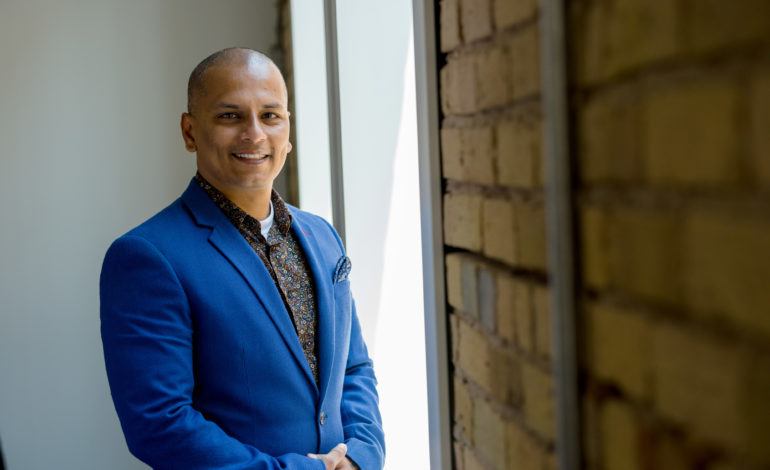
Right, it’s not ownable. That’s the big one for me right there. So is there a situation within which scale is the goal, be it revenue or audience, but marketing isn’t the best tool?
Yeah, if the product or service you’re bringing to market clearly solves a problem, then you can go right into it. Like nobody spends any money on marketing ketchup. You don’t work hard to sell Heinz ketchup. It is ketchup, right? They go right into sales funnel. And if you’re selling, during COVID, some sort of rapid testing thing. You don’t need a lot of marketing. The product does its job. So in the absence of brand equity, in the absence of a proven pain point, you need more marketing to tell people your story. But if you’re out there and you’re solving a problem because it is big and noisy, you don’t need a lot of marketing. You go right into your funnel. The people are aggressively looking for you. You just treat the collisions.
So then you just brought another thought into my head. So when you’ve got something, and we’ll just use the ketchup example. And there’s like 50 ketchup companies. Now, even though you don’t have to prove your worth, you have to prove your point of differentiation as to why you should be the first choice for them. What would someone do in a case like that?
Yeah, so if it was ketchup, there’s history, there’s brand equity from being around the longest. Saying “From 1920 we’ve been using the best tomatoes for the whatever” is really important. Brands that are also in that kind of head space tend to bring a lot of the evidence. You know, the ketchup and the fries that went together when you were 12 is what you use when you’re 50. We’ve been with you for such a long time. So this narrative around authenticity and history of a relationship together that the new folks don’t have. And also, when you’re solving a real problem real quick, you get to build the marketing after you have made this. It is from customer service. It’s from the follow up, from the added value. So marketing still happens. You just do it after the transaction because you’ve got the trust. And, for us, if I use Schoolio as an example, again, not to get talking about us, but the first 400 customers bought curriculum from me, they have no brand. I’m not a known entity in the education system. But they had a massive problem. We solved it and then built the trust. Well they’ll make the second, third, fourth, fifth purchase. And that’s okay. So today we have this really cool vibe where some folks need a marketing message to move them into the funnel. Some folks are just biased because they need it and then they want to get to know us. In both cases, I still need to have the discipline of having a marketing plan.
Absolutely. So let’s ask you this then. Based on what you just said there, your thoughts on how good marketing authenticates a brand in the online marketplace that then translates over to helping the business scale.
100 per cent it’s about building that credibility again. At the end of the day, people buy from people. And today the big trend is brands are acting like humans. They’re creating the value proposition around humanizing their service. And this is where the evolution of the chat box and the new technologies around immersive web experiences come in. We’re trying to become more human in our brand approach because the market says, “I’m not going to buy from you until I trust you.” And for me to trust you. I need you to be vulnerable and pathetic. I need you to share common beliefs. So when we are humanized, both as a brand and as a product, marketing has to have a big layer of authenticity. And the comfort that you might not be a fit for everybody.
“This is where the evolution of the chat box and the new technologies around immersive web experiences come in. We’re trying to become more human in our brand approach because the market says ‘I’m not going to buy from you until I trust you.'” ~Sathish Bala
Right.
And be okay with finding the right side of people. We try to service the entire market. When we first started and we realized, no, our tribe is the eight to 10 million families that have already chosen the home schooling lifestyle way before the pandemic. They’re completely isolated out of the system. That’s our tribe. The new folks that are reacting to COVID, awesome we’re going to try to help you. But you’re not my customer, even though you’re 100 x bigger market. And that’s it for today. That might change a year from now, two years from now, three years from now. But we are conscious that our brand, our vision, our tone, our messaging align really well with 10 million people. And that’s okay. And we’re good with it.
That’s a good market. And I think that you just touched upon something else that we didn’t really talk about, and that is being extremely clear about who you serve. I mean, what is your niche? I mean, when a person comes across Schoolio, they don’t want to know that this is an education curriculum that they can get online for everyone. They need to know that if you are serious about home schooling and that is your lifestyle of choice. We are the choice for you. So I think that’s the other thing that people need to also understand.
Marketing is one of my favorite topics just because there are so many layers and so many different circumstances and so many ways to get the sale, whether that sale is another follower, a fan, a prospective client, a lifestyle client,. Whatever any of that is, marketing just has this beautiful marriage between the tactical foundational stuff and just understanding how to take that and humanize it by using creativity to help you accomplish that. So for those people, Sathish, out there just getting into marketing, what do you feel they need to do to get a good foothold in today’s marketing overload culture? Because so much marketing isn’t good marketing. Just because it’s out there doesn’t mean it’s working. So what can we share with people who I meet who, especially after this conversation with you, understand that they’ve got to get their marketing game together?
My number one thing always is don’t do it yourself. You can’t until you’ve done enough to know what to do and what not to do. Seek help. This is not to tell people that you’ve got to go get a coach and all that stuff. There’s tons of stuff on YouTube to share, places where you can go get help or reach out to folks that are currently doing it. There’s nothing wrong with reaching out to people that are already in the business a few years ahead of you. And have a discussion on what they’re doing, because, again, just because we’re both selling ketchup it doesn’t mean we’re going to have the same customer. And so I spend a lot of time looking for experts in areas that I don’t know. Like I’m really good at marketing, but I’ve never done education. So I spent all of April and May connecting with marketers and education in e-learning and curriculum development in the US and abroad and India and Asia to learn what do they think about when talking about curriculum. And I realized in all my research that none of them actually talk about the curriculum.
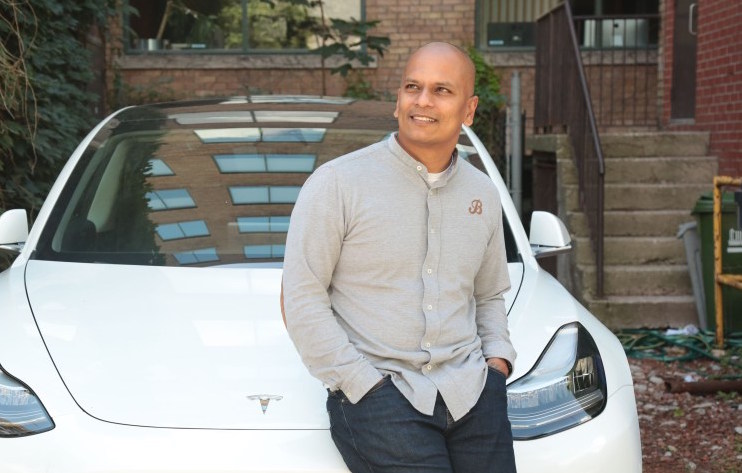
We talk about the values of having a stress free curriculum environment. Nobody goes out there talking about, I’ve got math. I have language. I wouldn’t have known that. I would have been out there saying I have math. I have language, right? So I think the easiest, cost effective way to build momentum is to bring on some folks that have done it in the past and learn on the job. And because so much of this stuff is about being creative, about testing and paying attention, but you can’t do that if you don’t know what to look for. Same thing with the data point I told you about. I didn’t come up with the stuff. I hired some really smart people and said, hey, tell me all the data points I should care about. Then I chose the ones that I really cared about and then we implemented it. Now it’s part of my DNA moving forward and every new company. So I think reaching out and connecting with people is really number one.
Number two, back to the original conversation. Be really clear on why you’re doing this for. Stress is not going to go away, but you need to know why you’re doing it when a customer gives you negative feedback and you want to turn them into a positive. You need to know what you did that created that negative reaction, to convert it into positive. So all of this stuff about clarity is super important. And then three, it’s about being brave enough to test. None of us are perfect and the entire thing that I love about marketing, which I think you love about, is it’s an opportunity to be creative. We’re in the business of human chess, not to ultimately win, but to create the largest pool of people that globally believe in your product or service. And today it is global economy. Man, you can have a company in Canada, zero clients in Canada. And that’s okay, right? Because your tribe is built out of a different ecosystem. And so I think those are the top three that for me create the baseline when I look at new opportunities.
Absolutely. So what are marketing must-have tools you feel every business needs to have in place today to set them up to scale, specifically to set them up to scale.
Number one, automation. You know, doing stuff manually in the beginning is important. But if you’re not using a HootSuite, if you’re not using Canva integrated. If you’re not using a HubSpot, if you’re not using MailChimp, if you’re not tied into your Quickbooks with automatic invoicing. Today, the businesses I invest in and love at least 75 per cent of the day-to-day is automated. And we try to strive for that 80 per cent automation because then 80 per cent of the time, we’re not working in the business. We’re thinking about the business. And it’s a shift that consciously has to happen. If not, the easiest thing to do is just be in the business. It’s just three more posts. I can do it today. It’s not a big deal. No, because by the time you think about it, do it, post it, log off. You’ve lost two hours time, 365 days. And so I say focus on automation, automation, automation. And in every step of your 7 Ps, your business interaction, your data, your ad buying, there’s all sorts of tools today where, in my opinion, if you’re not automating at least 70 per cent to 80 per cent of your day-to-day business, you are never going to scale.
“Focus on automation, automation, automation. In every step of your 7Ps, your business interaction, your data, your ad buying, there’s all sorts of tools today where, in my opinion, if you’re not automating at least 70 per cent to 80 per cent of your day-to-day business, you are never going to scale. ~Sathish Bala
Wow. That is a great, invaluable tip right there, folks. Actually, the entire conversation has been incredibly valuable, especially for those of you who are entering the world of wanting to be an entrepreneur or perhaps you want to kind of figure out why certain aspects of your strategies aren’t working. I want you to go back to the beginning of this conversation, and I want you to really listen to it. I want you to also think about the people that are in your life, whether it be personal, whether it be professional, that you feel need to hear this conversation and you’ve got to send them the link to this. You guys already know that it’s up on YouTube at TheOpenChestConfidenceAcademy.com. You know that wherever podcast stations are, you just need to search for ‘The Transform Your Confidence Show.’
The reason I do this show, guys, those of you who tune in all the time, is because I just want to be able to fill that gap between those who absolutely have no idea what they’re doing or what they should be doing, to the people that are really fully committed to taking their business to the next level. So, I come to you twice a week, once on Sundays, once on Wednesdays, 9:00 a.m. and also 12:00 p.m. So I just want to make sure that you guys really kind of understand how important and why these conversations are valuable. I am so super happy that Sathish came on the show, but I’m not done with him yet. Guys, I’ve got a couple of questions that I want to close out with. You know, I can talk to you forever because we talk the same language. That’s why I love speaking with you. And you always have insights and ways of sharing things that are very different from the way I do. And I love, love, love learning from you. So I want to ask you this question. Is there anything that you feel that I haven’t touched upon where marketing is concerned to help people scale their business, anything at all that you feel that you want to do?
Yeah, I think you hit on it. But I just want to reiterate, the marketing plan is not the same as a sales plan; completely different. People always confuse the two. And they go, oh, my sales are not going well. And I say, what’s your marketing plan? What’s your sales plan? And they don’t have a differentiator. So just to re-establish that point, your marketing is all about why they should buy something from you. It doesn’t mean they’re going to buy from you. All it says is here’s why you should consider me — that little voice: need, want, need, want, need want. If you state in a want perspective, maybe they’ll get you, maybe they won’t. Your sales strategy, moves them into the want. And there’s two completely different frameworks and it has to be respected for what it is because they operate completely differently. And I mean so many companies where their marketing plan is their sales plan and yet there are no sales, or their sales strategy doesn’t have a marketing plan. So they have no sales. And so know that it’s different and have a priority of working on both and know that sales strategy will continue to change. What we sell in the summer at school is different than we sell September 1st. Who we are as a marketing company is always the same. So, know the difference is really important to me.
“Your marketing is all about why they should buy something from you. It doesn’t mean they’re going to buy from you. All it says is here’s why you should consider me — that little voice: need, want, need, want, need want. If you state in a want perspective, maybe they’ll get you, maybe they won’t.” ~Sathish Bala
Absolutely. I love, love, love, everything about what you just said. As we close out for anyone out there who believes that they don’t need a marketing plan or a sales plan or any of what we’ve been talking about to scale their business, can you just tell them what they need to know?
If they don’t think they need a marketing plan?
Yeah, if they think they can scale their business without a marketing strategy, without a sales strategy, what would you say to those people?
Good luck. You’re part of the other statistics that we reference. And by points, you know, the the businesses that could have happened but didn’t. And shame on you. Like, when I look at business owners and I look at the moment, you put so much on the line, you sacrifice your money, your family, your time. There’s an idea that the world could potentially really benefit from. And all that positivity didn’t happen because you were too lazy or not focused to create a marketing plan or a sales plan, even if it’s a one pager. It’s a no brainer. And what did the world miss out on? What did your life miss out on? Because you didn’t have the discipline to get two pieces of paper and label a marketing plan, sales plan and try something out and just hope for the best. And I think there’s another quote, I can’t remember who wrote it. “Hope is not a strategy in business.” Hope is not a strategy in business. It’s a marketing plan, a sales plan, a customer success plan and a new self growth plan. And if you don’t want to focus on it, that’s cool. You know, we need the other stories to talk about too.
Absolutely. For anyone out there who would like to reach out to you for mentorship or counseling, how can they get a hold of you?
I do a really good marketing job of like being visible. So just type Sathish Bala into Google. I’m big on LinkedIn, Instagram. If you know Raj, you can always reach out to her. But you know, I make it a point to make be visible and that was by design. It wasn’t by accident. I decided in my 20s that by the time I get into my 40s, I want to be accessible. I want to go from chasing opportunities to attracting opportunities that happened. I needed to spend two decades building the right brain for myself, building the right marketing plan around me and my companies to a point where now it’s nice to be able to help people and look at opportunities coming to me. But it wasn’t an accident. It was, as you know, 20 years of pen and paper and adjusting and working really hard. And look, I don’t have a business background. I’m a computer scientist that learned everything I’m sharing on the job. So all of your excuses, if I’m not a business person, I’m not a sales person, I’m not a marketing person. It’s all just words. You can replace them with more inspiring words and go build a great company.

Here here. Thank you so much for joining us for this really valuable deep dive Sathish. You have got to come back on because there are so many things that you are good at that I just want to be able to kind of garner some wisdom from you for the audience here who are watching, listening or even reading the blog. Thank you so much, Sathish.
My pleasure, really. I love our company, so it just flows. And it’s nice to be able to share it any time you need me. Give me a call. Put that bat signal out. I’m coming.
I love it. You know, I’m hitting you up on that one. Thank you so much for hanging out with me and Sathish today, folks. I really hope that you got some valuable insights through our discussion, that you really understand the importance of being intentional with your marketing strategy and also understanding, like Sathish said, marketing strategy and sales strategy. And he also added a third one, which is customer retention strategy and growth strategy. They sound like they’re similar, but they’re not. They are very, very distinctly different yet connected entities. So if you want to know more about how to do that or at least optimize what you already have, or maybe want someone to take a look at what you’ve got, maybe just kind of take a look at how it can be done. Better hit up Sathish. Just go search Sathish Bala. And he is very active. You will find him out there in the entire online ecosystem.
For more trainings like this, I’ve already said it but I’m going to say it again to close us out, go to YouTube at The Open Just Confidence Academy. You can also go to any podcast platforms, Apple, Google, Spotify and search the ‘Transform Your Confidence Show.’ Also, go to my website and check out the newsletter. We do a free weekly newsletter where all of these trainings are there. But I also do a mini article where I talk about some sort of perspective that I feel is something that could be valuable to you on your journey of professional development.
Because that’s my area, guys. Professional development is what’s important to me and I’m always on that journey of myself, so I know all of the things that are going to happen along that journey for you, whether it be psychological, whether it be a lack of knowledge, whether it is just the motivation that’s lacking to action, and to be accountable for those actions. All of these things are what make for a professional journey to be successful like Sathish has been talking about throughout the entire conversation that we’ve had. If you are not willing to do the work, look at the data out there and be honest about what it is that you’re in fact trying to do here. And it has to be something that’s providing value to someone outside of your own ecosystem. So I want you guys to sit with that, and I look forward to the next time you and I chat again, Sathish. And until then, just keep rocking and rolling and being the fabulous person that you are, because I love everything that you do and you know that. And I’m happy that you are on the show.
I appreciate it. It’s always fun to come and share and reach out, folks. And I’m accessible. I look forward to coming back and chatting again. Thank you.
Thank you so much, Sathish.




